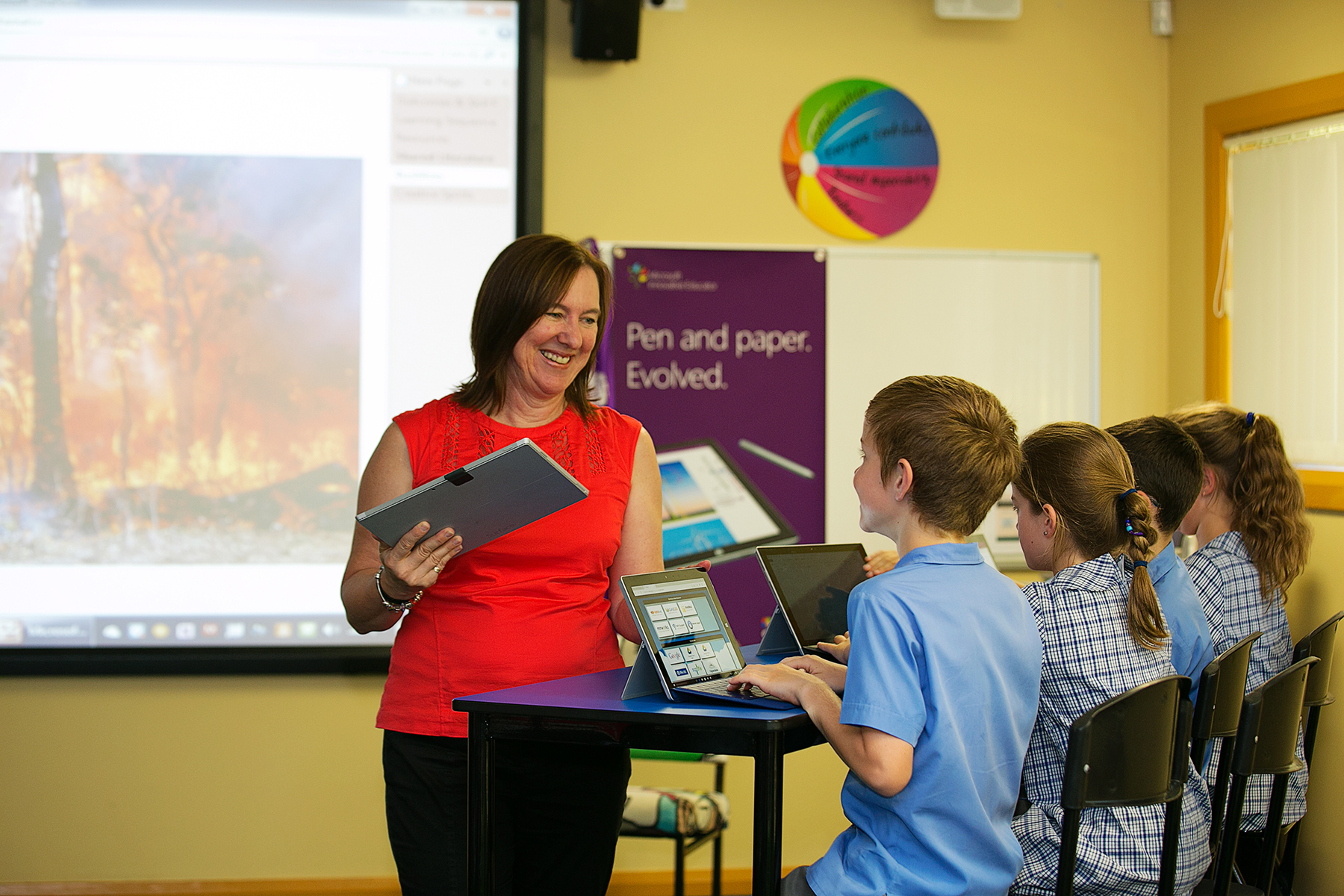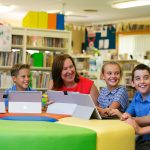While many people finish high school with a sentiment of never returning, Lynette Barker had other plans. For as long as she could remember, Lynette always wanted to be a teacher, first stepping in front of a classroom in 1985. Now 32 years on, Lynette has truly experienced the role that technology has played in recent years, particularly in the way it can help to streamline information for both students and teachers.
Following a ten year career hiatus to start a family, Lynette took up a casual teacher librarian position working a couple of days a week. “Initially I was concerned I wouldn’t be able to return to teaching after taking such a long break. But after working in the library, I realised that my passion for teaching was actually a passion for absorbing and sharing information. I gained a new perspective around how librarianship and technology can better work together to help both students and teachers find the answers they are looking for, because when you look at it – learning is about answering questions,” said Lynette.
“I gained a new perspective around how librarianship and technology can better work together to help both students and teachers find the answers they are looking for, because when you look at it – learning is about answering questions.”
Despite children now having 24/7 access to information at their fingertips, Lynette believes information technology has made the school library more prevalent than ever before – with technology transforming the space from simply an information resource to more of a ‘makerspace’ where students can learn to critically understand and explore information.
Lynette believes the evolution of St Therese’s Primary School New Lambton library is key to fostering student creativity as well as driving innovation amongst staff, giving them the freedom to try and test their ideas. Separate from pedagogical outcomes, Lynette also has seen a surprising change in the way in which students socialise and collaborate with each other.
“The library was often used by students wanting to explore literature and by others looking for a quiet space away from the playground, but what’s really lovely is that the library is now being inundated by students for new reasons. Students are working closely together, and are forming meaningful social bonds in these makerspaces.”
“During lunch the library was often used by students wanting to explore literature and by others looking for a quiet space away from the playground, but what’s really lovely is that the library is now being inundated by students for new reasons. Students are working closely together, and are forming meaningful social bonds in these makerspaces.”
“One of the biggest criticisms around technology in education is that it’s giving our students more screen time. But the reality is that despite having their own device, kids are gathering around and comparing their work. A perfect example of this is how our students interact when we do lessons using Minecraft – they’re excited, they ask questions and most importantly they collaborate and help each other to solve problems.”
“A perfect example is how our students interact when we do lessons using Minecraft – they’re excited, they ask questions and most importantly they collaborate and help each other to solve problems.”
Since being accepted into Microsoft’s Innovative Educator (MIE) Expert program – a global community and program of educators who work closely with Microsoft to drive technology innovation – Lynette believes that the confidence she has gained has been crucial in moving forward with her ideas and projects at school level and across the Maitland – Newcastle Diocese. Lynette now leads various technology programs outside the library, to support teachers with their curriculum planning.
Her current project is EPIC Planning. “This year we’ve migrated every class in a year group onto a shared OneNote, which means each grade is collaborating together online. The hope is that teachers will have more time to reinvest in lesson creativity. With everything hosted in one place, no time is wasted on having to search for the latest lesson plan on the server.”
Looking back to when she first stepped into the classroom, Lynette says that one of the biggest lessons she has learned is that failure only matters if nothing is learned. “The experiences and connections I have made through the Expert Educator program has given me the confidence to stop talking and start doing. There’s always an element of risk, but what I realised is that nothing is lost if this is the case, because we learn from our experiences to make the next attempt even better than the last.
“The Expert Educator program has given me the confidence to stop talking and start doing. There’s always an element of risk, but what I realised is that nothing is lost if this is the case, because we learn from our experiences to make the next attempt even better than the last.”
“And it’s that confidence that we are now trying to impart on our kids through these programs –that failure is part of the learning process and that they shouldn’t be deterred from using technology, exploring, experimenting and being creative due to a fear of failure.”
Lynette is one of four Expert Educators who have been selected to represent Australia at the Microsoft Global Educator Exchange (E2) in Budapest, on March 8, 9 and 10 – an annual event that brings together 300 of the most innovative educators and students from around the world.
To learn more about the Expert Educator program, including how to become one! Visit: https://www.microsoft.com/en-au/education/educators/miee/default.aspx.










